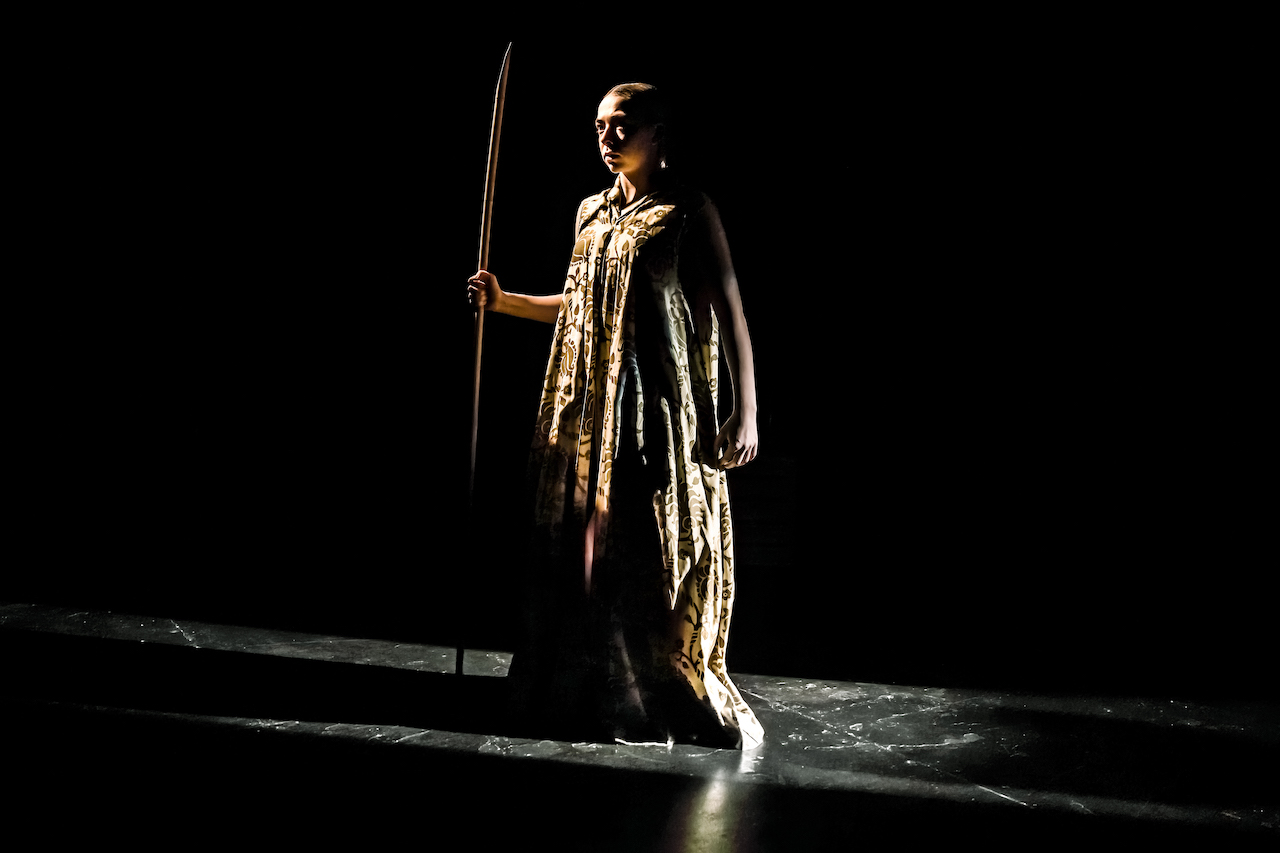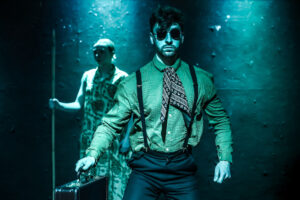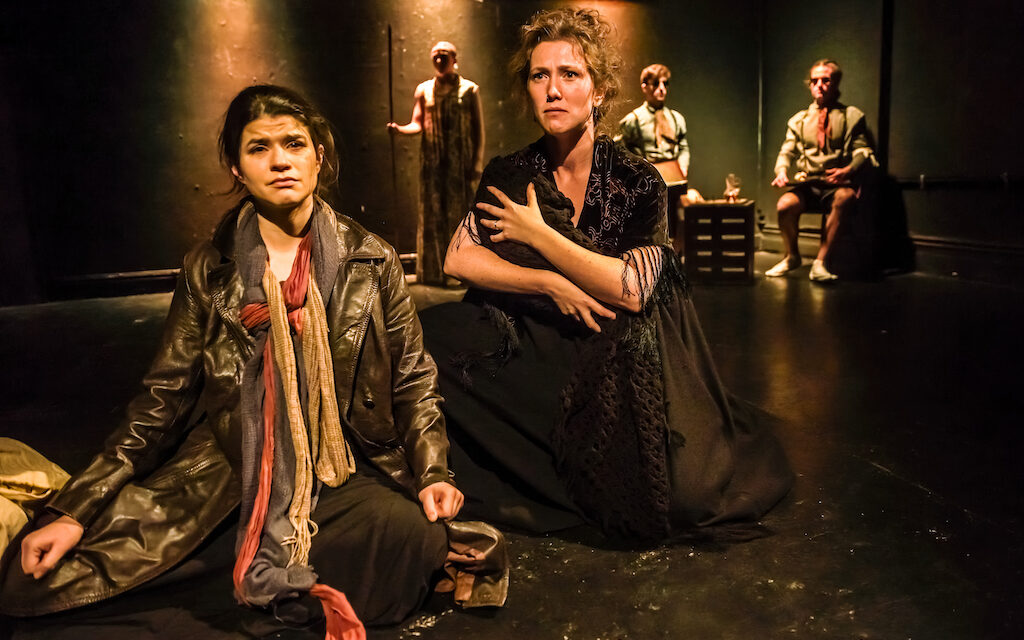
28 – 29 November
Lest we forget what exactly we owe to Athens, as inheritors of Greek culture – let’s call it the first Enlightenment – it behoves us to recognize the suffering that much progress rests upon. That said, it is undoubtedly the case that the plight of Hecuba, wife of King Priam and mother of the Trojan warriors Paris and Hector, stands for women throughout time and in every epoch in every land. In short it is part of the human condition. Likewise, Andromache, the widow of the slain Hector, is the representative of all displaced women who find themselves without the protection of home, family or husband.
However sketchy our knowledge of classical myth and history, we have at least a nodding acquaintance with the woes and triumphs of Homer’s Greeks and Trojans. This reworking by Bristol International Theatre Workshop of Euripides’ play, which is set in the immediate aftermath of the fall of Troy, embraces the universality and echoing familiarity of the stories and presents us with a multi-lingual version of Euripides’ play.
Now, before we roll our eyes at the thought of a lot of indecipherable language (I detected Greek, French, German, Italian and English) it’s worth considering how much of an opera we might understand, or if it is necessary to know what a piece of music is about (if anything) before we can enjoy it. Plays that leave us baffled whilst still being able to enjoy them will readily spring to mind.
This is a highly stylized production, directed by Chris Williams, and draws upon theatrical practices outside Western tradition. Watching last night’s show I found myself recalling some of the recent work of the Aakash Odedra Company and Ballet Rambert, who both manage to transcend traditional boundaries in telling universal, archetypal stories. The work of Theatre Complicité ploughs a similar, experimental and eclectic furrow.
The living statue of Athena makes a slow, almost mesmeric entrance, before a pronounced stepping to the front of the stage where she lets out an ear splitting shriek. Soldiers, the guards of Hecuba who has been dragged on, at first almost like strange automatons, then appear to peel off the side of a Greek vase to enact their frozen stories, whilst their military uniforms and dark glasses clearly mark them as actors of more recent atrocities.

Again the psychological trauma of both Hecuba and Andromache loses nothing in being filtered through unfamiliar language. And then the final tableau of blood-drenched misery needs no verbal language.
Experimental theatre can often fall flat, but here we see a step in a potentially fruitful direction. Inchoate it may be, yet full of promise – we await with interest.
★★★★☆ Graham Wyles, 30 November 2023
Photo credit: Craig Fuller


